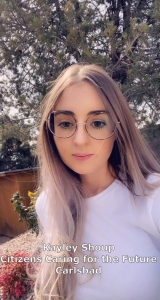Testimony on State Methane Rules: Arcelia Isais-Gastelum
 Members and supporters of New Mexico Interfaith Power & Light have prepared testimony for hearings held by the Environmental Improvement Board. The hearings, held the week of Sept. 20-24, are in support of the The New Mexico Environment Department’s (NMED) strong proposal to cut ozone-forming volatile organic compounds (VOCs) and methane released by the oil and gas industry. Here are the comments from Arcelia Isais-Gasgelum, a member of the NM-IPL board of directors.
Members and supporters of New Mexico Interfaith Power & Light have prepared testimony for hearings held by the Environmental Improvement Board. The hearings, held the week of Sept. 20-24, are in support of the The New Mexico Environment Department’s (NMED) strong proposal to cut ozone-forming volatile organic compounds (VOCs) and methane released by the oil and gas industry. Here are the comments from Arcelia Isais-Gasgelum, a member of the NM-IPL board of directors.
Thank you members of the Environmental Improvement Board
Good afternoon, my name is Arcelia Isais-Gastelum and I’m a board member with NMIPL. I’m here to ask that you vote to support and strengthen the New Mexico Environment Department’s draft rules to address Ozone Precursor Pollutants from oil and gas operations.
As a young adult who has dedicated my education and entire professional career working to address climate change, I believe stopping pollution is a crucial first step and is also necessary for protecting our communities. From a moral, physical, and spiritual standpoint, we can no longer afford to keep sacrificing the health of our people for short term economic gain. We saw how detrimental this was during the COVID-19 pandemic and we have an opportunity and responsibility to learn from these hardships and do better.
Our state has some of the worst methane pollution in the country. In addition to causing a quarter of the global warming we are experiencing, methane operations also release compounds into our air that cause respiratory diseases and increase risks of cancer. These effects have disproportionate impacts on our children, and it is for them that I wanted to draw attention to.
This country has repeatedly empowered industries who routinely put our children at risk. It’s become so normalized and expected, there’s now an entire generation of kids who are growing up and realizing they are beholden to a system that agreed to put their future at stake so previous generations could turn a profit.
It’s for these kids that we need to right these wrongs. They are acutely aware of everything that is going on at a level that has never been as accessible as it is today. They are watching and I ask that you show them we won’t keep sacrificing their well-being for temporary gains.
I share the concerns these kids have for our futures and for this reason, I ask that you strengthen the methane rules to ensure frontline communities are protected by routinely inspecting for and fixing leaks, where 70% of the methane emissions come from and by cutting pollution caused by pneumatic controllers.
Thank you for your time.

